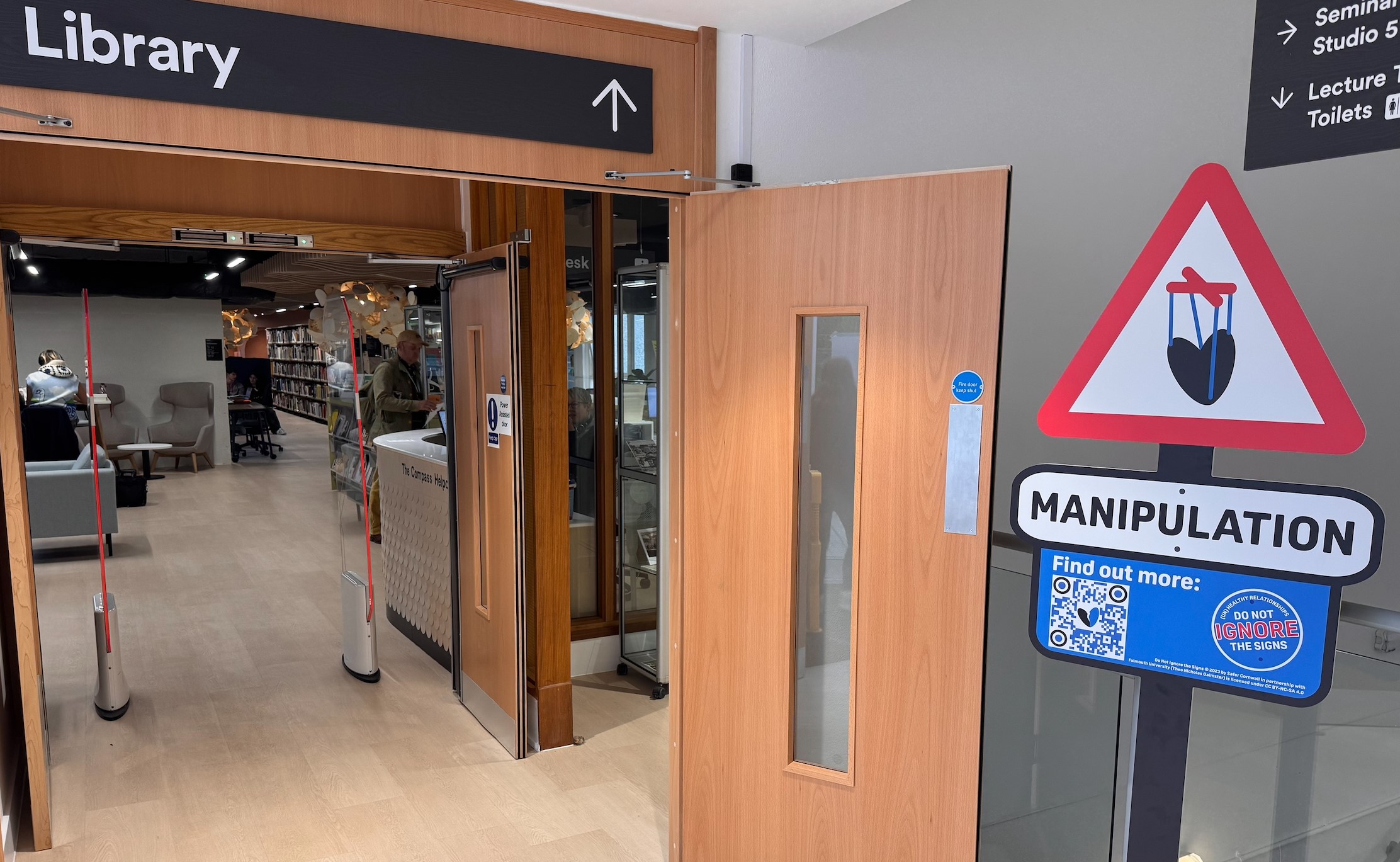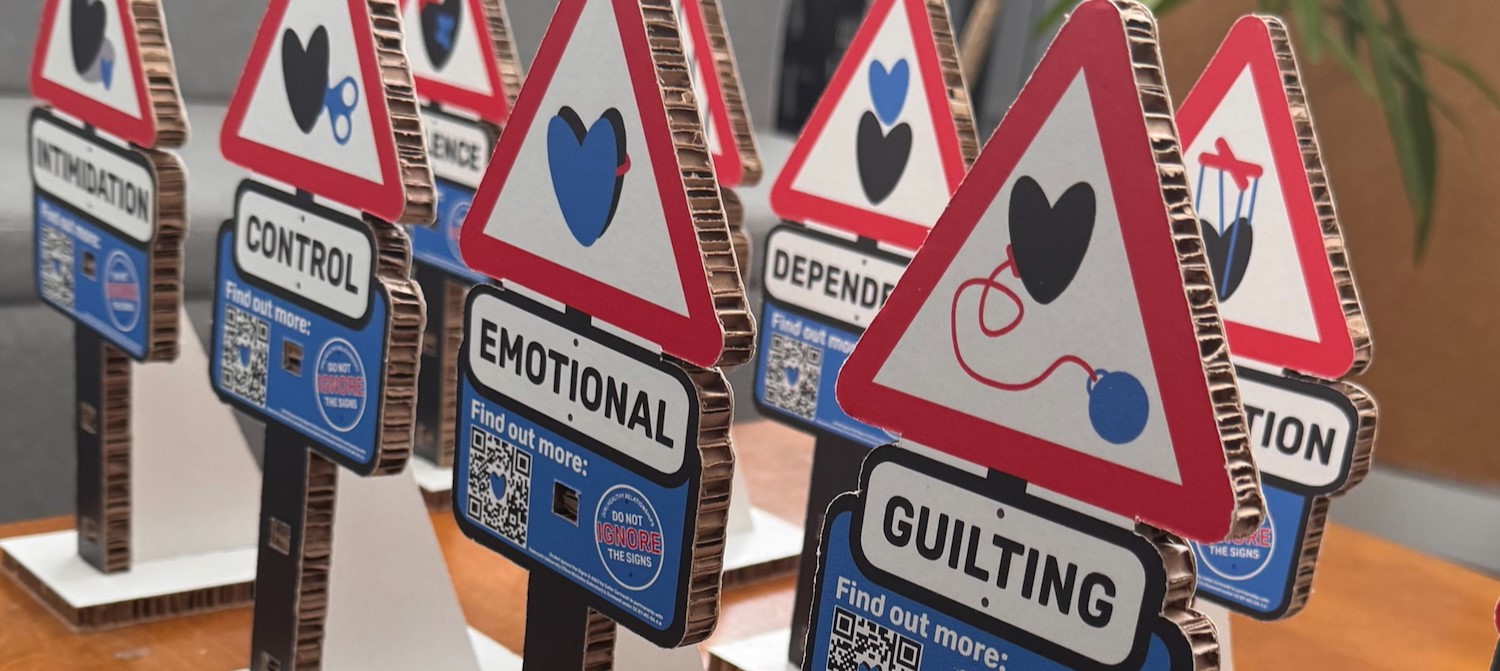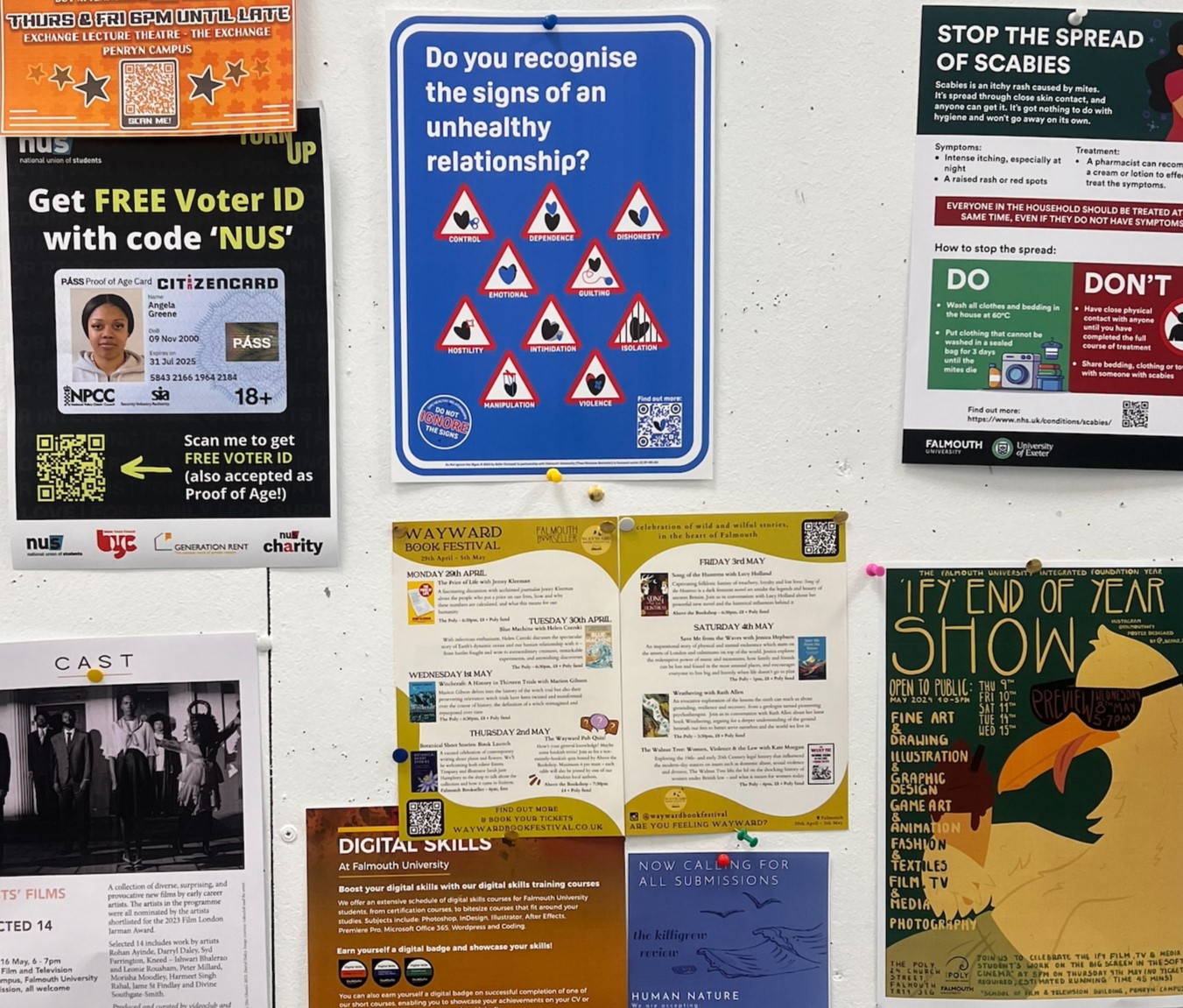Last month, Falmouth University was home to multiple signs with words spread across them like ‘manipulation,’ ‘violence’ and ‘contol.’
Beginning as a project for Theo Gaimster in his second-year undergraduate degree, The ‘Do Not Ignore the Signs’ campaign is an initiative which seeks to help students identify the signs of an unhealthy relationship.
“It started out as a way to tackle violence against women and girls,” explains Theo.
In July this year, the National Police Chiefs’ Council and College of Policing declared that violence against women and girls (VAWG) is a ‘national emergency.’
Figures have shown that domestic violence against women and girls is also increasing throughout England and Wales with an estimated 2.1 million people experiencing domestic abuse in the year ending March 2023, according to The Independent.
Theo, now an MA Communication Design student, realised that people “are aware of the signs, but they just don’t want to talk about them,” so he set out to find his own creative ways of battling the stigma surrounding the subject of relationship abuse.
“When I pitched this campaign [for my project], I put posters around the studio and no one noticed them,” he says of how the idea to create visual tools for the initiative came about, “but everyone had commented on the tabletop signs I made.”
This drew the most attention, according to Theo, who expanded his campaign by providing easier access to the resources placed across campus, using QR codes.
When scanned, these lead users to choose between two quizzes, ‘For a Friend’ or ‘For Yourself.’
After either one is selected, the user is redirected to another page that has the quiz on it, and advised to have a pen and paper or digital note taking tools handy to note down a score for each question – the more points you get, the more severe the behavior you have witnessed could be.
SU (Students Union) President, Jadelle Luckman, highlights that she “fully supports” the campaign.
“We encourage open conversations about relationships and empower individuals to seek support without fear or shame,” she expresses.
Theo hopes this will assist others in discovering a bad situation, but acknowledges that “one thing is that [the signs] might be healthy for one relationship, and unhealthy for another.”
He explains that the idea of the campaign is not to judge anyone or force people into believing they are in an abusive relationship, and as such has had to be “very careful to pick correct language” when creating the quiz.
Theo understood that the campaign could “not attack men, as [we’re] just going to alienate them.”
“Despite statistics being higher for women in these situations, it’s a universal issue and needs to be approached from a middle point,” he says, “so we just need to have that conversation and find the causes of some of these behaviors by raising our voices when something isn’t right.”
In a further statement, Jadelle says she hopes the campaign will reduce stigma around these issues, providing easy access to the right guidance.
“It’s not just about raising awareness, but about there being a sense of community and responsibility by educating students,” she says this will help them to understand the differences between a healthy and unhealthy relationship – whether romantic, platonic or familial.
“I believe it sends a clear message that no one has to face these challenges alone – this campaign is an important initiative that I hope will lead to stronger, healthier relationships on campus.”
Want to know what other students thought of the campaign? Check out this short video: https://youtube.com/shorts/UEYXJtLnMPs?feature=share


